By Douglas Carroll, DKI APCSS Public Affairs Specialist
SUVA, Fiji – Amid the occasional roar of heavy November rains and the frequent calls of local myna birds, 64 participants from 18 Pacific Islands Forum (PIF) member countries gathered in Suva for a three-day workshop on national security policy development. Hosted by the PIF at its historic conference center in the hills overlooking the city and Walu Bay, the event was conducted in collaboration with the Daniel K. Inouye Asia-Pacific Center for Security Studies (DKI APCSS) and the U.S. Department of State’s Bureau of Political-Military Affairs.
The workshop focused on how the Pacific’s security landscape has evolved, enabling participants to exchange perspectives on issues ranging from climate-induced migration to transnational crime. There was earnest and honest interaction from all corners of an audience that are usually quite reserved, professionally.
“What helped considerably in bringing about conversation was our non-attribution policy, which assured them that nothing they would say would be quoted in public without their express approval,” said DKI APCSS professor Dr. Alfred Oehlers, who coordinated the workshop.
Participants highlighted challenges like environmental change, which threatens infrastructure, economies, and entire populations as well as international crime, which was identified as an immediate danger. Ayanna Ramarui, a policy analyst from Palau, emphasized the urgency of addressing transnational crime and cybersecurity threats.
Outside the main conference hall, which nests in the trees atop the lush grounds of the PIF, she said “Transnational crime and cybersecurity are our top priorities,” Ramarui added. “Back home, we’ve seen movements of drugs and humans, as well as recent cyberattacks. It’s our top concern.”
Dr. Francis Hualupmomi, Papua New Guinea’s national security advisor, who presented and was frequently called upon for his expertise, noted the workshop’s strategic importance, particularly for smaller Pacific nations still developing their security policies.
The workshop was really excellent; well planned, well-structured, and it really provoked us Pacific Islanders to think strategically,” he said.
Following the workshop, DKI APCSS and the Republic of Fiji Military Forces co-hosted a reception at the Queen Elizabeth Barracks. The event featured traditional Fijian music and dance, highlighted by the Meke, and brought together alumni and dignitaries, including U.S. Ambassador to Fiji Marie Damour, Permanent Secretary for Home Affairs and Immigration, Mr. Mason Smith and Major General Jone Kalouniwai, Commander, Republic of Fiji Military Forces.
“As alumni of APCSS, we all have fond memories of Hawai`i and the discussions that we have had there. Making those networks is something that is very important, and I believe it is something that has brought us together again,” reflected the Commander.
These alumni events, while great fun, are also very important to the mission of the Center and the success of its efforts. Acting Director Russ Bailey, who attended the workshop and visited several high government offices while in Fiji, spoke of their value and significance.
“We consider our alumni base, all 15,000 plus across the world, as one the most important outcomes and output from DKI APCSS programs. We need to hear from our alumni so that we can integrate it into everything we do at APCSS”, he said.
The bula and kava flowed in abundance as the day drew to a close. Dr. Oehlers took a moment to appreciate both the event and the view.
“Through your collective efforts, we’ve successfully made new friends, strengthened ongoing relationships, and demonstrated U.S. commitment and resolve in a vitally significant part of the Indo-Pacific,” he said.
Turning his view towards the ocean, he added, “And the thing you can always count on about Fiji is that the rainstorms always end with the most beautiful sunsets.”



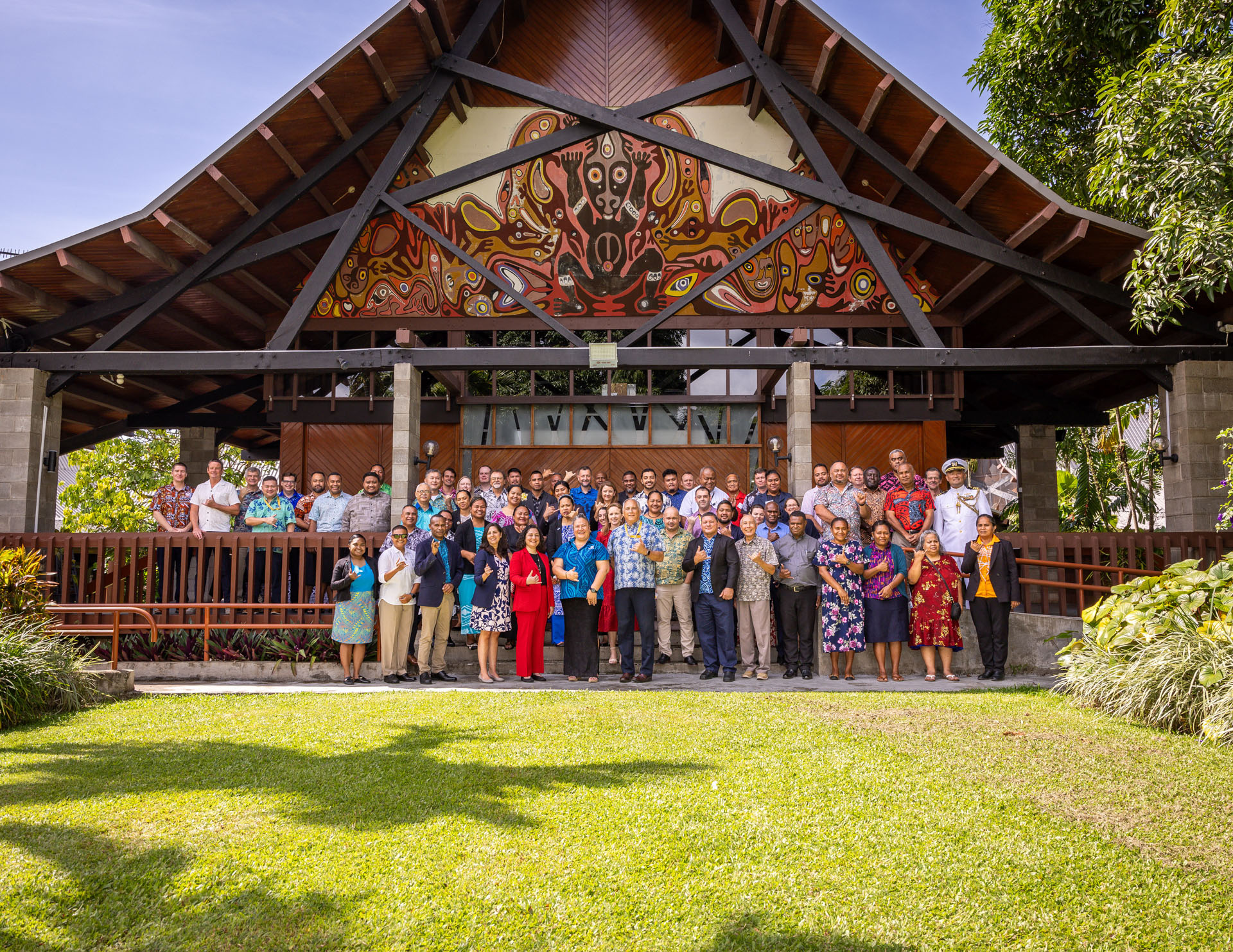
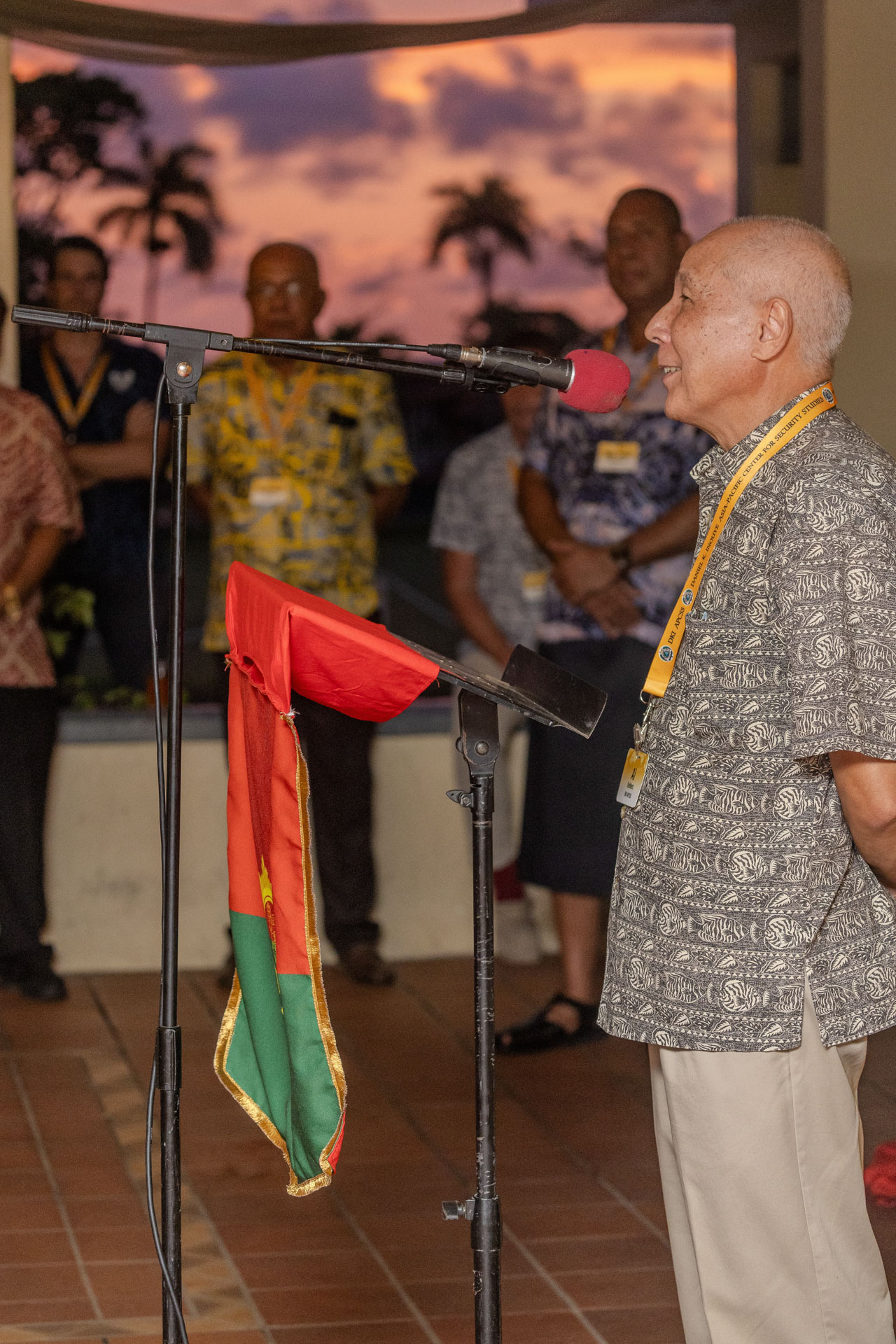
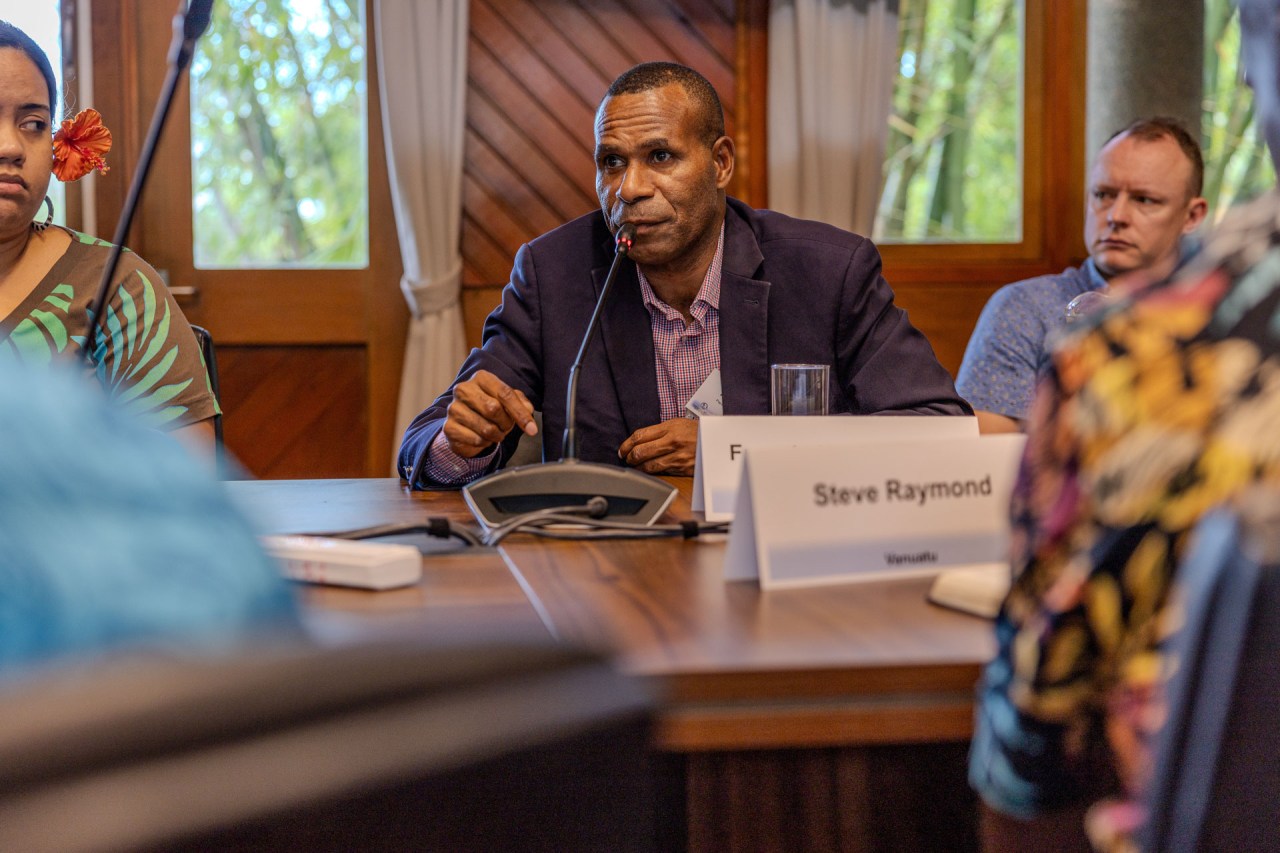
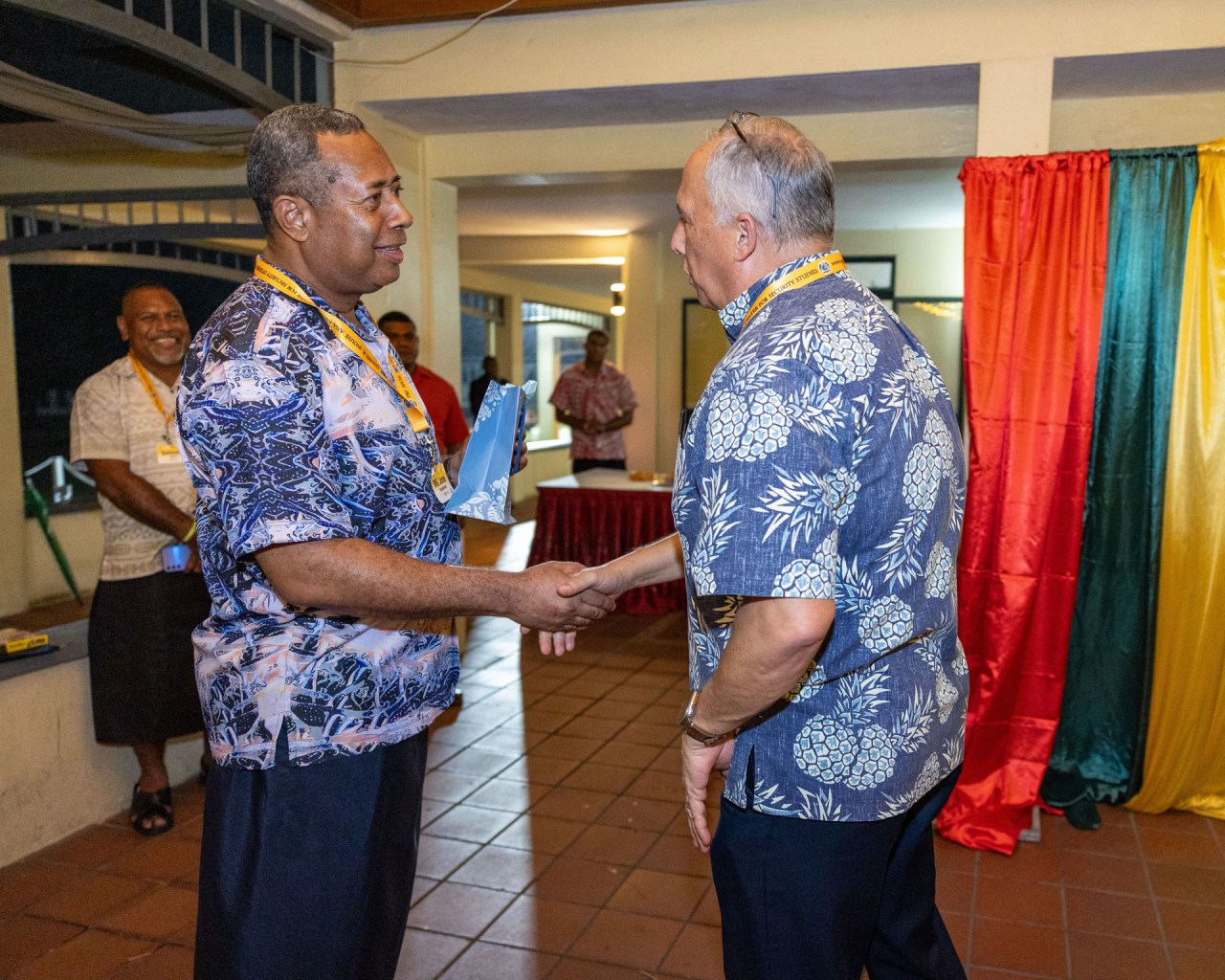
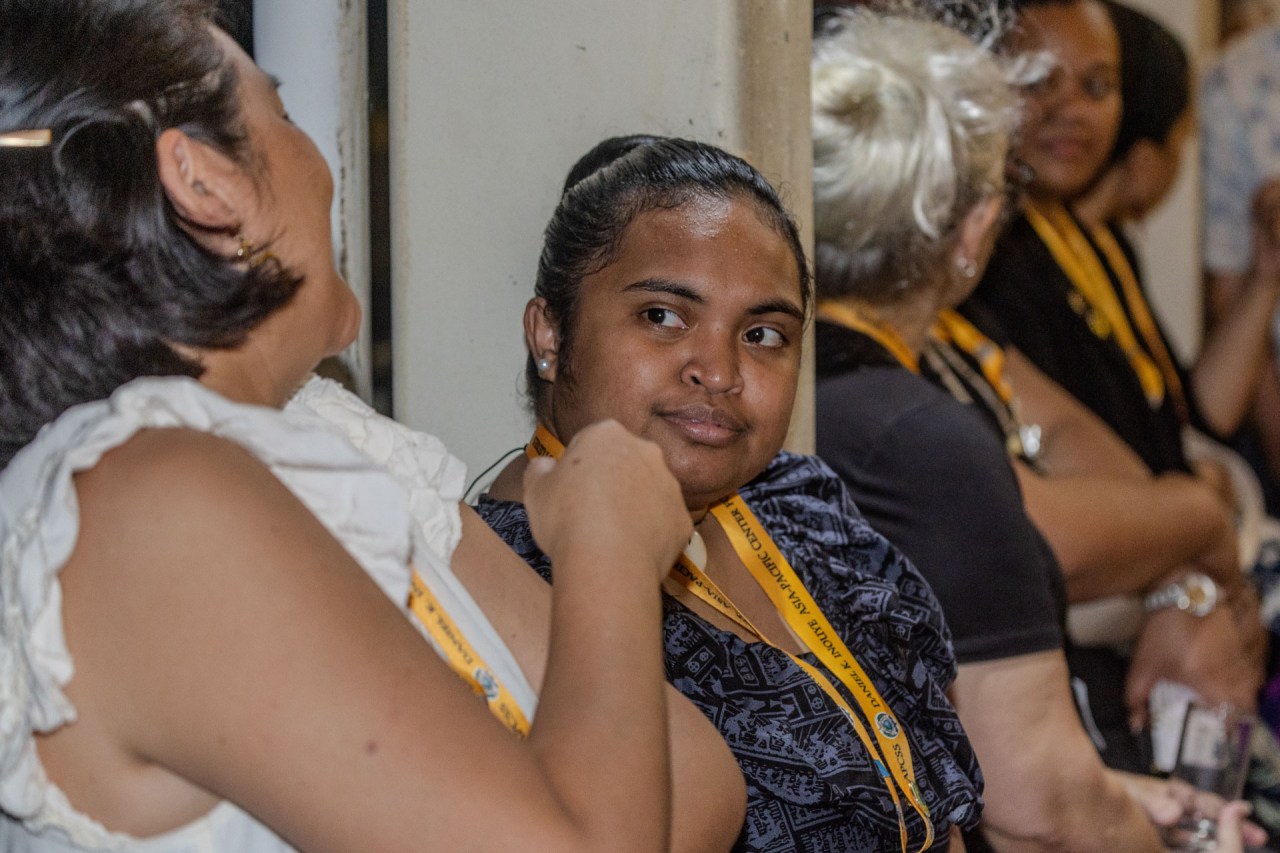
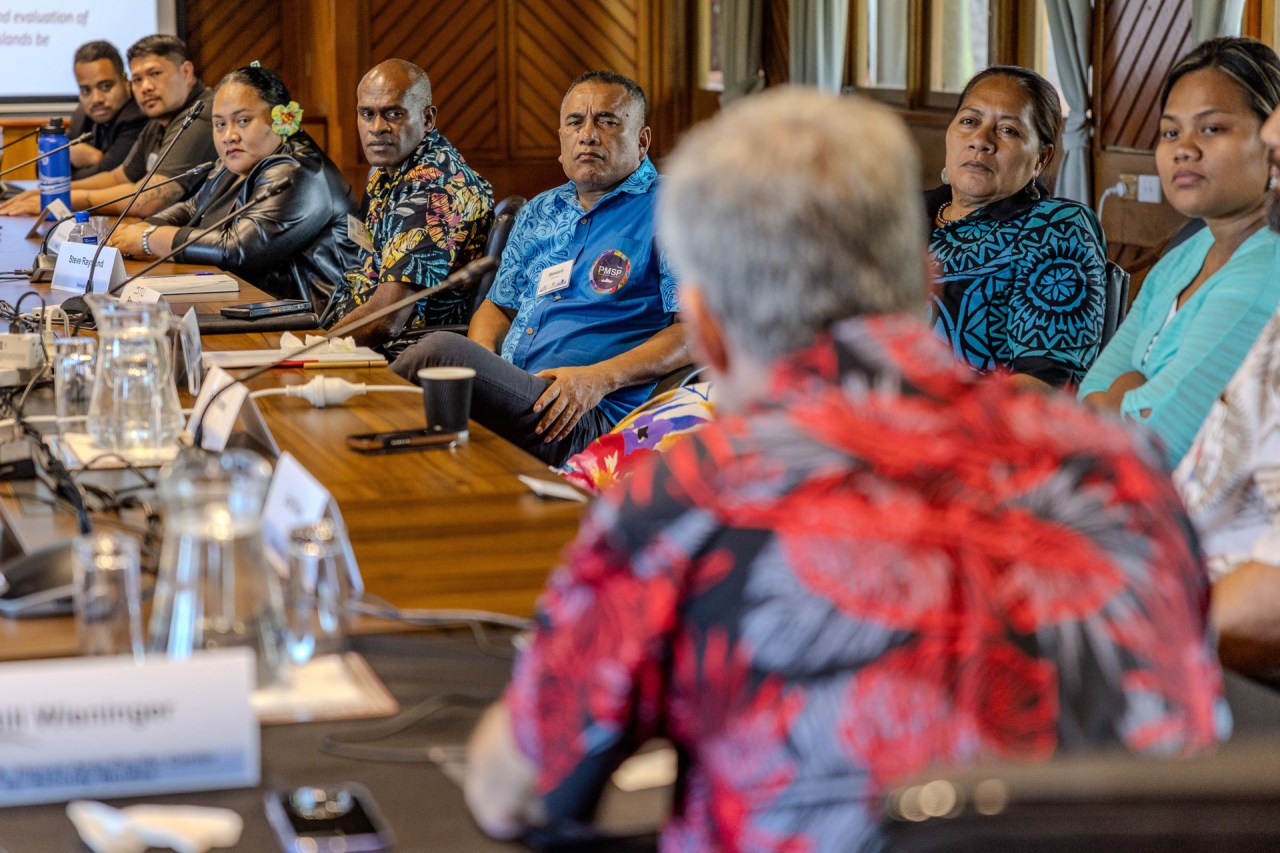

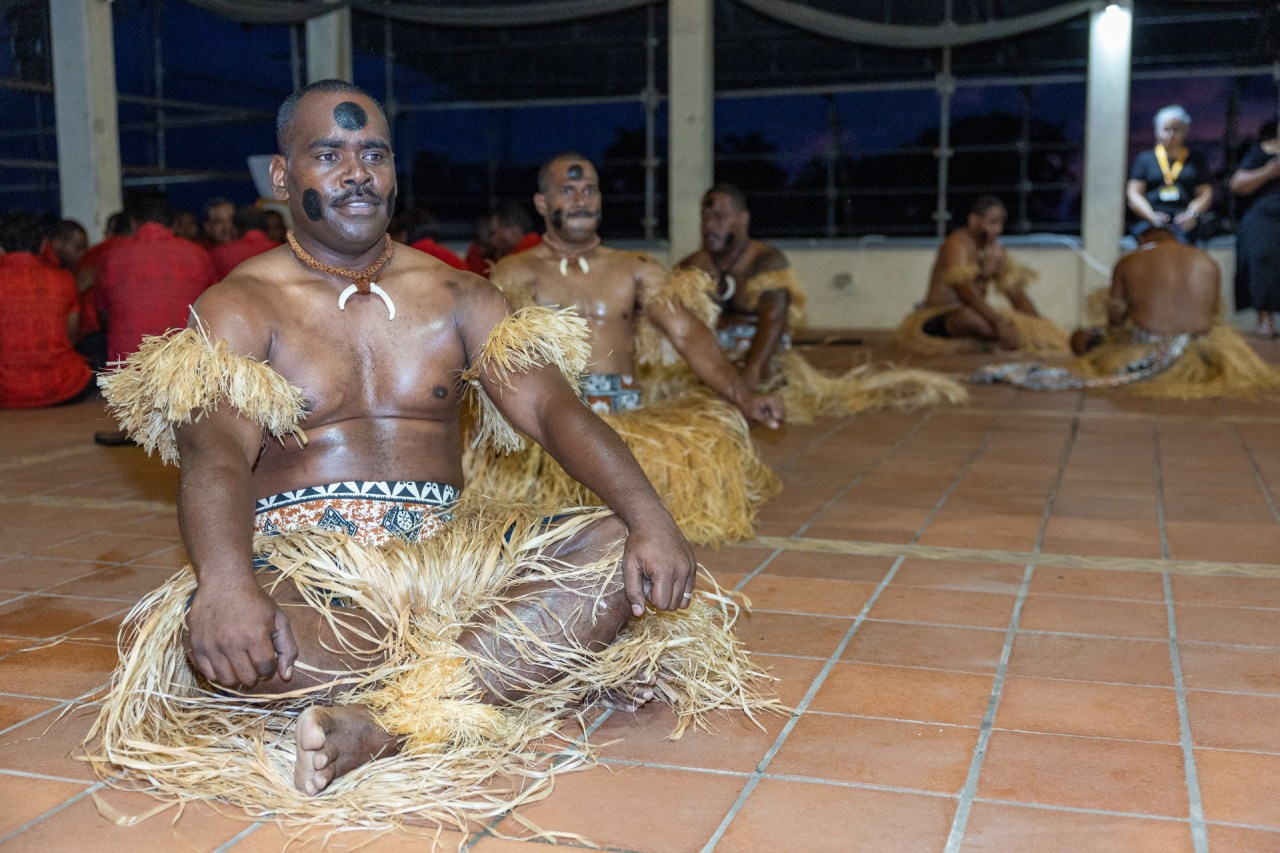
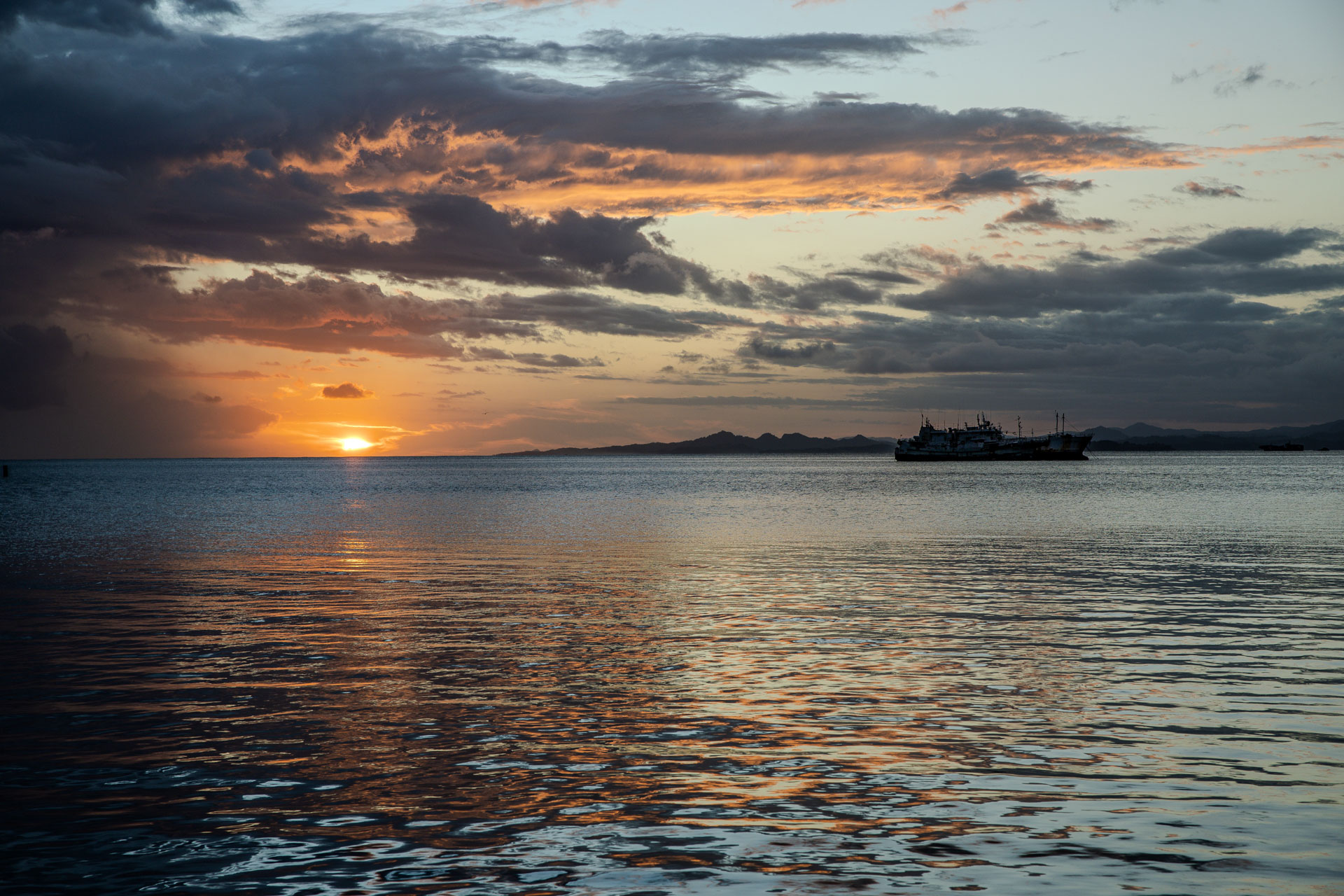
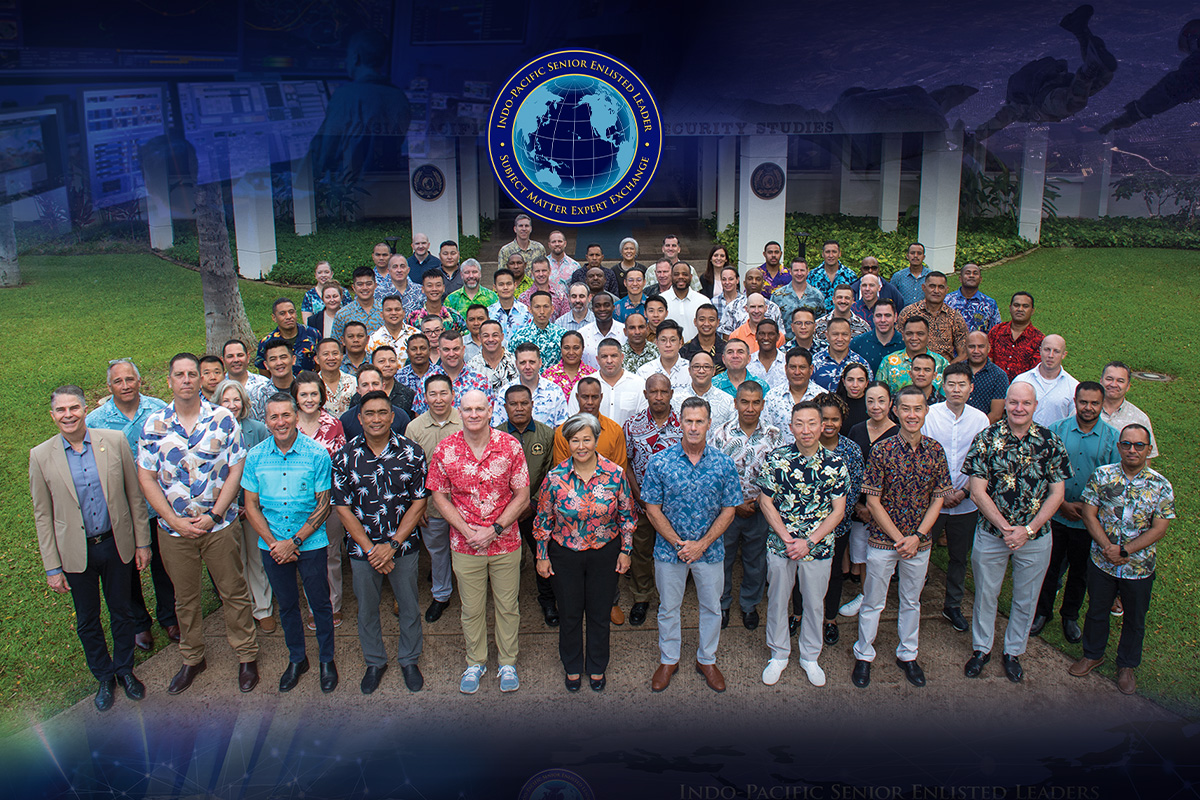
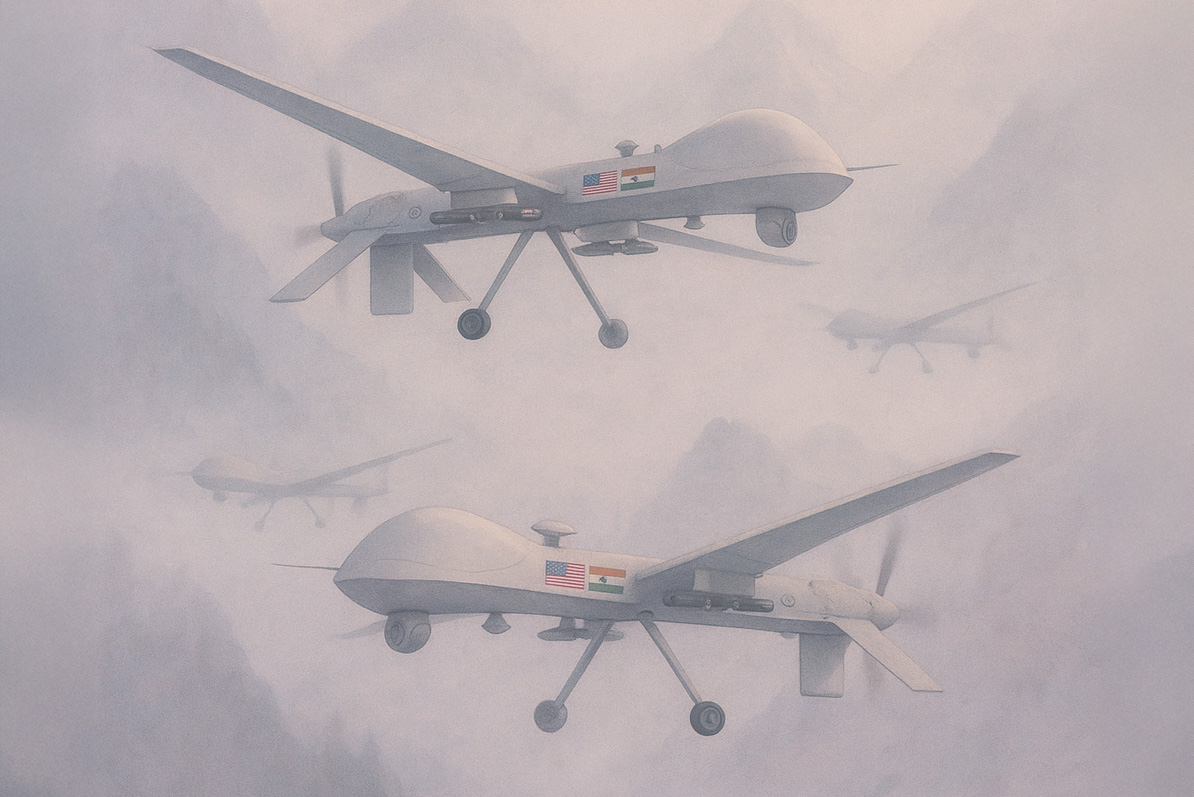
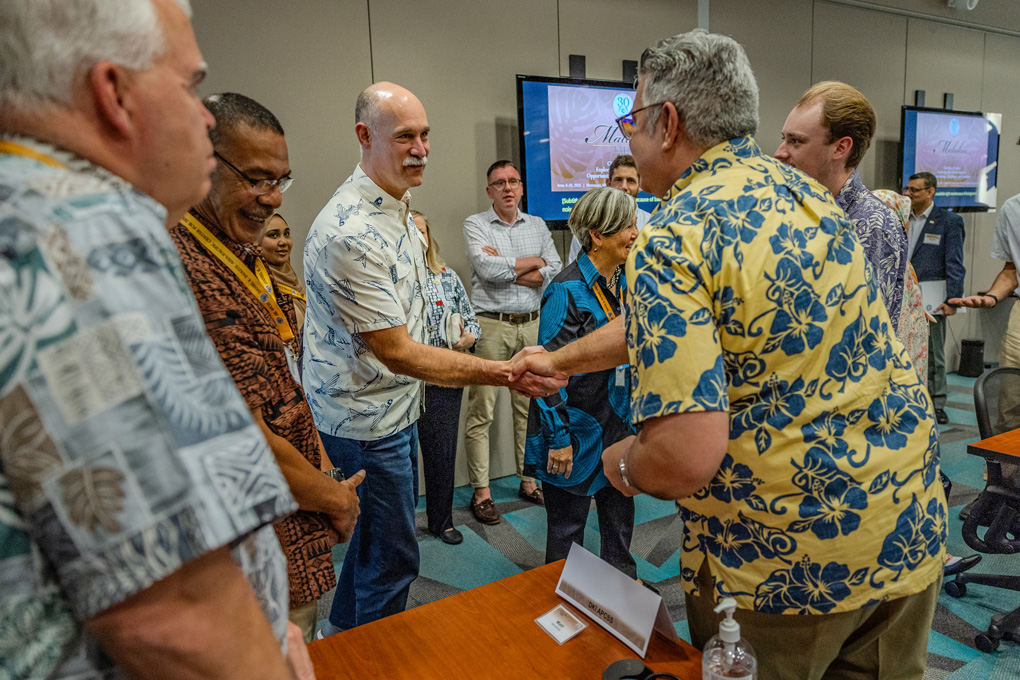



Enjoyed the Alumni program at the Queen Elizabeth Barracks in Suva,Fiji. Meeting up with the staff of APCSS brought back fond memories of Hawaii whilst attending ASC 2-12. Thanks for the certificate, acknowledging my current status in Fiji,and I look forward for continued association with APCSS Alumni.